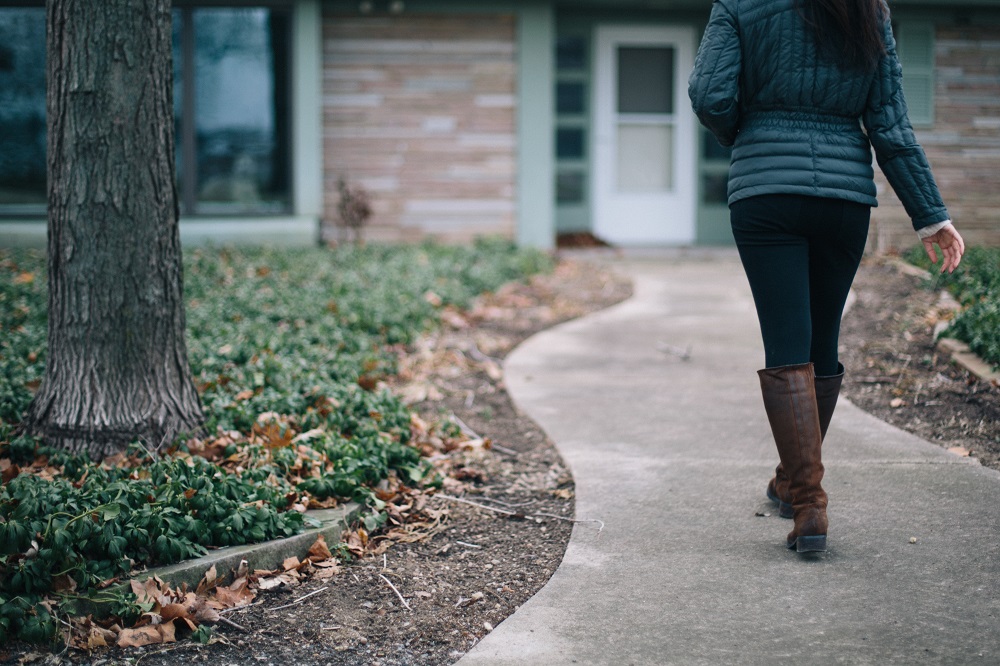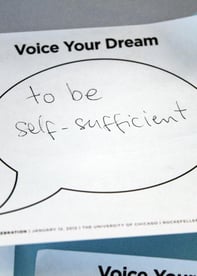Published on
Breaking the Cycle of Poverty One Degree at a Time: Making Higher Ed a Reality for Parents

The ACCESS Collaborative Program is a retention and graduation program that provides the academic and social supports needed to assist low-income, single parent students pursuing a degree at The Ohio State University by minimizing the barriers that may prevent their full participation in school.
When we were established in 1989, our focus was on enabling minority single parents with custody of their children to earn an undergraduate degree and find employment suitable to their academic preparation. Today, the program serves any OSU student who requires our support by coordinating university and community support services to meet their needs, both as students and as heads of households.
The amount of programming, care and support we provide to participants has contributed significantly to our success over the years. Our team works diligently to educate single parent students on how to cope as student parents. One of the most important skills we teach is appropriate time management. After all, juggling classes, studying, work and parental responsibilities is very difficult. Our mandatory programming focuses on providing the necessary skills students need to manage the load.
Our office also serves as a hub for single parent students. It’s the place to come cry, vent and laugh when life’s frustrations have taken them to their limits. As a single parent myself (I have two daughters through adoption), I can relate to the many parenting challenges—the “how do you get everything done in 24 hours” questions—as well as the elation that comes when milestones are met. We talk about many things from problems with parents to violent relationships to dreams for the future, to which school should I look at for my child. We lend an ear, a book or article for class and sometimes even a hug to crying little ones.
It’s not all about our team, however. Support doesn’t just come from the program and its staff; single-parent students also support each other. Peer-support is extremely important as it reduces the feelings of isolation and belief that “no one understands what I’m going through.” Interaction with each other, either through organized events or in passing, helps develop the social and emotional networks that can facilitate overcoming the personal barriers that often seem impossible to conquer.
On the academic support side, we provide referrals to the Office of Diversity and Inclusion’s (ODI) Tutorial Services and Study Skills Program. Through this program, ACCESS participants can receive an individual tutor for specific classes, participate in mid-term and final exam review sessions as well as attend study skills workshops. ACCESS also offers study tables, a quiet place to study with access to computers and free printing.
In conjunction with Career Connection, students participate in events and workshops designed to help them think about and prepare to move on after graduation.
Through collaboration with the ODI’s Mentoring Program, students participate in major and career exploration along with Post-Baccalaureate preparation. Post-Baccalaureate preparation assists with resources and exploration related to graduate, professional and workforce entry opportunities and what the student would like to pursue after graduation.
We also recently forged a partnership with Community Properties of Ohio (CPO) and the Columbus Scholar House (CSH) that allows us to offer two-bedroom apartments to single parent students with full physical custody of their child and a full-time course load. This will allow them to receive a Section 8 Voucher and pay rent based on their income. Once a student graduates, they have up to six months to continue with school or move out of the building. Additionally, this voucher can travel with the student across the community—or anyplace in the US—until the student secures a job with a salary that makes them income-ineligible.
Lastly, participants become leaders in the community by participating in the College and High School Aspiring Mothers Partnership for Success (C.H.A.M.P.S) program. In the CHAMPS program, the students go through leadership and mentorship training. Then they mentor a pregnant/parenting high school student and, at the same time, expose them to life of pregnant/parenting college students. This allows the high school student to realize that postsecondary education is a real possibility even with a child.
This is only a small taste of the breadth of programs and services offered by the ACCESS Collaborative Program. We work hard to provide numerous support services to meet single parent students’ daily living needs and academic performance goals.
All of this together is what makes ACCESS successful in its focus on serving two generations thus breaking the cycle of poverty!
Author Perspective: Administrator


